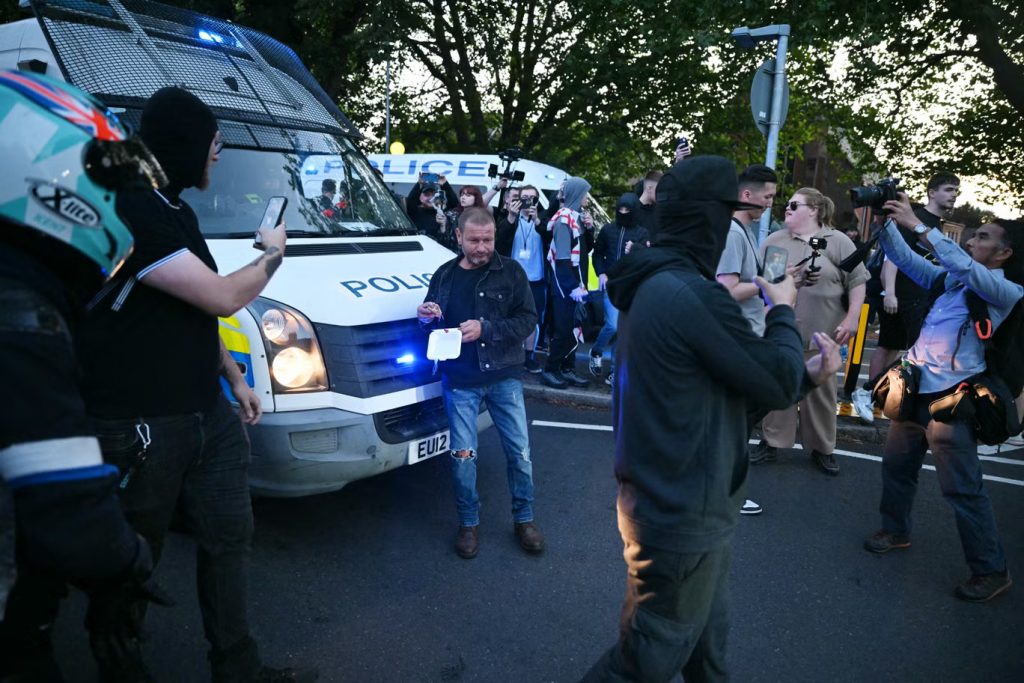Members of the UK’s largest neo-Nazi groups have been linked to anti-migrant protests outside a hotel in Epping, Essex, leading to 10 arrests. The protests were reportedly organized through a Facebook group called “Epping Says No,” which is managed by two known members of the far-right Homeland Party. This party is a breakaway group from the Patriotic Alternative, both known for spreading fascist and racist ideologies.
The protests targeted the Bell Hotel in Epping, which has been rumoured to accommodate asylum seekers. Law enforcement authorities have become increasingly concerned, especially as the Homeland Party members issued a “national call to action” on social media, similar to last year’s unrest that followed a tragic stabbing in Southport.
Essex Police responded by placing a dispersal order over key areas, including the town centre and public transport stations. The order, effective from Thursday 2pm to Friday 8am, gives officers the authority to remove individuals involved in or planning anti-social behaviour.
Protests spread beyond Epping as demonstrators also gathered outside the Britannia hotel in Canary Wharf, which is reported to be set aside by the Home Office to house asylum seekers. Though no migrants have yet arrived, over 400 beds have reportedly been reserved.
Counter-protesters from Stand Up to Racism joined efforts to resist the anti-migrant sentiment at both protest sites. However, Essex Police had to deny claims that they had brought in counter-protesters by bus, after speculation spread on social media.
The initial protests at the Bell Hotel were triggered after a 38-year-old Ethiopian asylum seeker, Hadush Kebatu, was accused of assaulting a schoolgirl shortly after arriving in the UK. He denies the allegations, but the incident intensified local outrage and was used by far-right groups to fuel anti-migrant campaigns.
Chairperson of the Police Federation, Tiff Lynch, wrote in The Telegraph that these demonstrations signal deeper tensions that could escalate further this summer. She warned that without proper preparation and resources, police forces may struggle to prevent more violence, especially if national tensions rise again.

